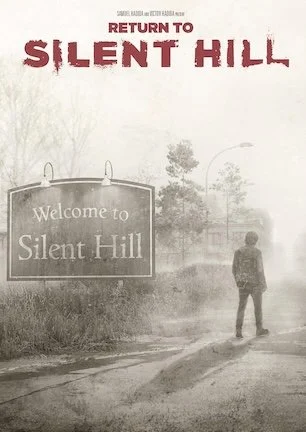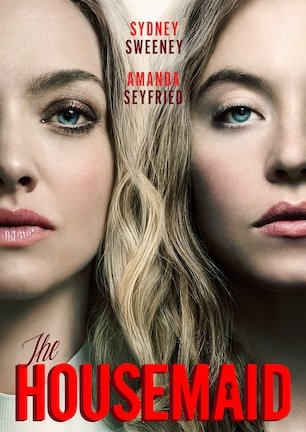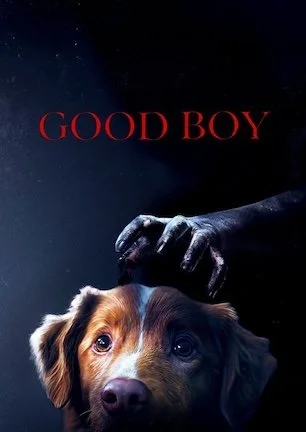Studio: Breaking Glass Pictures
Director: Derek Cole
Writer: Stephen Twardokus
Producer: Jon Gale, Stephen Twardokus, Derek Cole
Stars: Stephen Twardokus, Liesel Kopp, Cain Clifton, Jon Gale, Wendy Haines
Review Score:
Summary:
Desperate to find a bestselling story, a struggling writer attempts to bring out the ghosts in a supposedly haunted house.
Review:
With its simple one floor suburban architecture and modern furnishings that lend all the personality of a pre-fabricated home, “An American Ghost Story” takes place in possibly the least frightening haunted house to ever appear onscreen. Which is ironically fitting since “An American Ghost Story” happens to be one of the least engaging horror films to ever have its underside seared by a DVD laser.
Apart from presumably taking place somewhere in the United States, what makes this particular ghost story uniquely “American” is anyone’s guess. In a performance whose believability lies somewhere between the Tooth Fairy and the Loch Ness Monster, Stephen Twardokus, who also wrote the screenplay, plays struggling writer Paul. Desperately in search of inspiration for a bestseller, Paul has the bright idea to move into a supposedly haunted house that was once the site of a brutal murder-suicide.
The haunted house is more of a haunted room. The production design is claustrophobic out of necessity from being crammed into a compact location with a nondescript interior. Actors are often framed with their heads pressed against walls and the camera is jammed so far in their faces that their noses might smear the lens if they ever turned their heads.
Joining Paul for his paranormal party is a parade of purposeless people. Liesel Kopp is burdened with forced laughter and vanilla dialogue as Paul’s girlfriend Stella. When the kitchen cabinet doors open by themselves, Stella shrieks, “I can’t live in this house anymore!” through choking sobs as if she had just experienced six straight months of The Amityville Horror. She drops out of sight completely at the 30-minute mark, never to be seen again.
A jackhammer to the face has more subtlety than the characterization of an emotionally broken previous tenant. Wendy Haines’ Sue wears a rosary, clutches another rosary, and drinks from a mug emblazoned with a visage of the Virgin Mary. She then collapses to her knees while repeatedly muttering the Hail Mary, just in case her religious dependence was not already crystal clear. At least her two scenes have more to do with the story than that of Skip, the man who rents the house to Paul. His character’s primary reason for existence is apparently to give producer Jon Gale a chance to appear onscreen.
Even though “An American Ghost Story” depicts just eight days out of the 95 that Paul spends in the house, the runtime feels like the full three months. Literally nothing at all happens on day 55. Paul holds a stuffed animal while sitting on a bed until the movie jumps suddenly to day 77.
Another moment shows a woman preparing tea on the stove that feels like it might be gearing towards a “Final Destination” moment with the way it depicts rising steam and cuts to close-ups of the cups. It turns out that it really is just a boring scene of a woman preparing a hot beverage.
Content mostly with static shots, the camera rarely moves. Coupled with the barren interior setting, long scenes of Paul tiptoeing slowly down a short hallway and widening his eyes in feigned surprise make the viewing experience dreadfully dull. Loud crashes create several jumps, but the length of the drawn out sequences required to hit the payoff makes the attention span investment unrewarding.
Both the logo and the name for “2 Man Production,” the company responsible for the film, are quite literal. The graphic depicts an actor and a director, and it appears that these two men truly did make the movie almost by themselves.
According to the credits, the production crew consisted of exactly two production assistants and one director’s assistant. The director’s assistant shares a last name with director Derek Cole as well as an acting credit for the role of “Young Ghost,” indicating that said assistant was actually a child. The conspicuous absence of professional grips, gaffers, wardrobe, and representatives from any other department that normally exists on a film set is tellingly obvious in every frame. Actors reflect light off greasy faces. Crumpled pages from a Pennysaver constitute moving box props. Each dark room is illuminated by the same 45-degree angled slash of light. Indeed, this is a movie made by just two people on a budget scrounged from couch cushions, and it shows.
“An American Ghost Story” is a stale slice of horror browned in an oven of amateur filmmaking with the vain hope that no one will know the difference. Unsurprisingly, the production comes out as stiff, dry, and tasteless as a piece of unbuttered white toast. The tagline on the box art reads, “some things are better left alone.” This film is one of those things.
NOTE: "An American Ghost Story" was previously known by the title “Revenant.”
Review Score: 15






While the 110-minute runtime could use a trim to maintain more energy, “Redux Redux” is an easy recommend for anyone who enjoys low-key sci-fi.